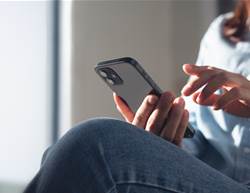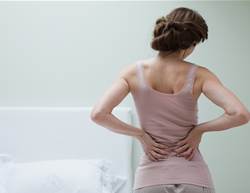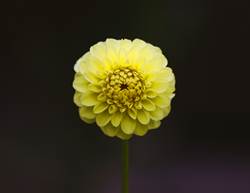There's this stereotype people have that lung cancer sufferers are older, unhealthy people. I wasn't. I was diagnosed at 38 and had never smoked a day in my life. I attended university on a basketball and athletics scholarship. So to be diagnosed was a shock.
Showing up for my first chemo treatment and seeing the other people there felt like, OK, this is real. This is going to happen. I asked at the nurses' station if there was a place I could go to be by myself for a minute. The nurse there took me to the ladies' bathroom, and I prayed to God to let me be strong enough to put this poison in my body. I had always taken care of myself, so the thought of putting poison into my body was difficult. But people told me cancer was worse poison than chemo, so that's how I tried to think about it.
I made really great friends with the staff and nurses. We would have great conversations, and they were like my second family. Such caring people. I'd go two weeks in a row, then I'd be off for a week. It would take an hour for the chemo to drip, and I would sit there and watch TV and talk to my nurse friends, then I'd just be done for the rest of day. The next day I would always go to work. That was a control thing for me. I was not going to let chemo keep me home, so every Wednesday I would go in for work.
The thing you can count on with chemo is that it's predictable. You know afterward you're going to feel lousy for the next three or four days. But then you're going to feel much better, so you can plan things. You can still schedule fun times with family and friends. You just work it into your calendar like every other activity.
What's difficult is that by the time you go back in, you're feeling good. But you know when you go in there, after an hour you'll feel lousy again. It's like getting the flu, but with the flu you don't always realise it's coming and you don't know how bad it will be. With chemo, you know what you're going to get. You don't have a choice. But it's something you can predict, and you know it's saving your life.
Right afterward, my side effects were mostly feeling extremely nauseous. It got to the point where just smelling something or even someone talking too loudly could make me feel sick. I never actually got sick, I'd just feel bad. But I'd know it was going away in a few days, and that I'd feel good again.
Day 3 was always the worst day after chemo. So I just counted on that. I'd be really tired. Nothing sounded good to eat. Very, very nauseous. I'd sleep a lot. Just really not feeling well, almost like motion or seasickness. I did have some other side effects, like bloody noses and a bit of bad acne on my neck. My hair fell out, of course. I gained weight, because I was on steroids. I had sores on my tongue that were painful. But I just had to change my diet and work through it.
I wore hats and took some medications. I ate different foods so I wouldn't irritate my tongue. I couldn't drink or eat anything with acid. So tomatoes and orange juice were out. I ended up drinking a lot of water and milk and bread, and things without flavour. They also gave me this stuff called magic mouthwash that made my tongue numb.
To get through it, I danced every day. I love music—all kinds. I love to be outside and with my puppies and in the sunshine, and I love going out to dinner. One thing I always did, and still do, is put something on the calendar to look forward to. I think that's really important. You can allow chemo to take over your life, or you can keep control. I always put something on the calendar so I had something to look forward to that I knew would bring me joy and pleasure. Rather than focusing on the fact that I had cancer, I was focusing on what I could do to make a difference or make myself feel better. And like I said, I danced every day.
The key to getting through this thing is quality of life, and asking for what you need from your medical team to make your quality of life better. Like the no-Friday chemo thing. Don't allow chemo and cancer to run your life. You run your life, and you work chemo into your life.
One of the best things I experienced when I was going through it was just the amount of love and support I received from people. One of my favorite things was to go to the mailbox and find a card from a friend, and to know my support group was there. It is so important to know you have people in your corner—praying for you and rooting for you to do well. Love and support lifts you up. That's probably why I gained weight, because I'd get trays of brownies or homemade cookies from friends! People were just wonderful, and you need that. And now, afterward, I've had the honour to help others with the disease. I feel I've been chosen for this.










